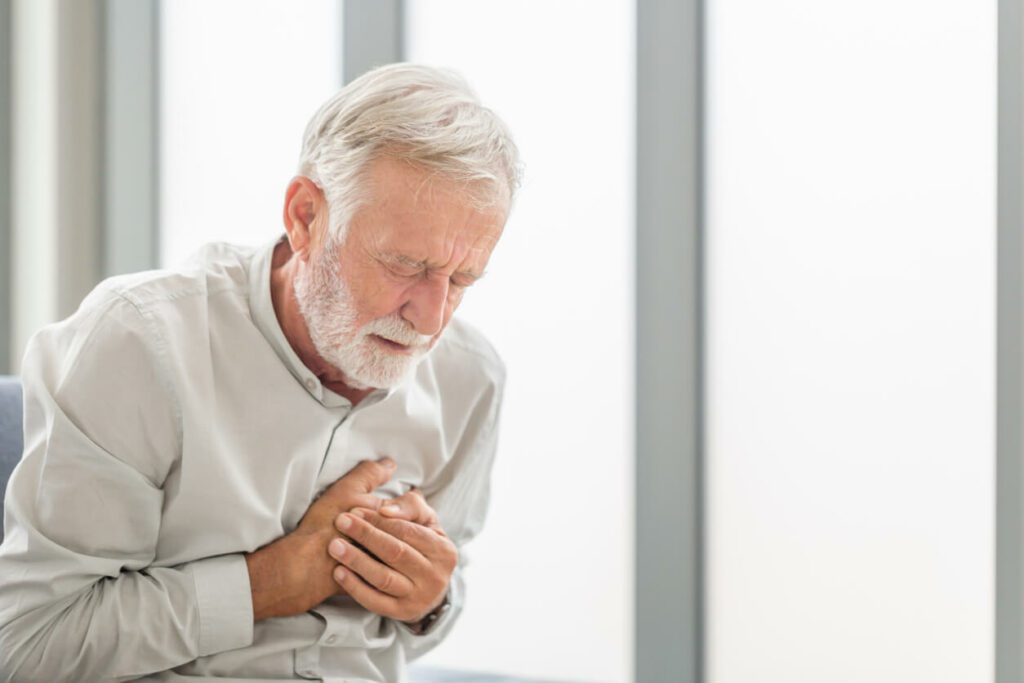
Chest pain is a symptom that should never be ignored. It often causes worry, confusion, and fear, because people associate it with heart problems. However, there are many possible causes of chest pain, and not all of them are heart-related. It ranges from minor issues like acid reflux to serious conditions like heart attacks. When chest pain occurs, knowing where to go and what treatments are available is an important step.
This article will explain the best treatments for chest pain and how to find the right healthcare provider.
1. For Cardiac-Related Chest Pain
Chest pain caused by heart problems, like angina or a heart attack, needs quick medical care and specific treatment.
Emergency Treatment for Heart Attacks
If someone is having a heart attack, immediate action is critical to their survival. Emergency medical teams provide oxygen, aspirin, and nitroglycerin before reaching the hospital. At the hospital, doctors might perform advanced procedures like opening blocked arteries (angioplasty). They may also give special medicines to dissolve blood clots.
Management of Stable Angina
Angina happens when blood flow to the heart is insufficient. This can cause chest pain. Treatments usually involve medication, such as beta-blockers, calcium channel blockers, or nitrates. These help improve blood flow to the heart, reduce pain, and stop future problems.
Surgical Interventions
If the arteries that bring blood to the heart are badly blocked, surgery might be needed. A common surgery is called coronary artery bypass grafting (CABG). It is where new paths are created for blood to flow around the blockages.
2. For Musculoskeletal Chest Pain
Chest pain can also come from muscle strains or injuries, often caused by too much use or an accident. These types of pain are not related to the heart but can still be upsetting.
Rest and Ice Packs
If chest muscles are strained, resting and using ice packs can help ease the pain.
Pain Relievers
Medicines often help to relieve mild pain. Most pain relievers can be purchased over the counter and do not need a prescription.
Physical Therapy
For ongoing issues, such as costochondritis or fibromyalgia, physical therapy can help. It strengthens the muscles around the chest and lowers pain over time.
3. For Gastrointestinal Causes
Some stomach and digestion problems can feel similar to heart-related chest pain. This includes acid reflux, gastroesophageal reflux disease (GERD), or hiatal hernias.
Antacids and Acid Reducers
Medicines like Tums or Maalox, which can be bought without a prescription, provide quick relief for acid reflux. For long-term care, doctors may recommend proton pump inhibitors (PPIs) or H2 blockers.
Dietary Adjustments
Changing what you eat can make a big difference. Avoid foods that cause problems, eat smaller meals, and do not eat right before bed. These are helpful steps to prevent this kind of chest pain.
Surgical Options
For serious cases of GERD or hiatal hernia, surgery might be needed. A common procedure is called fundoplication, which helps prevent stomach acid from rising.
4. For Panic or Anxiety-Induced Chest Pain
Anxiety and panic attacks are common culprits of non-cardiac chest pain. This type of pain is usually accompanied by sensations such as rapid heartbeat, trembling, and shortness of breath.
Relaxation Techniques
Breathing exercises and mindfulness meditation can help you manage stress and reduce chest pain over time.
Medications
Anti-anxiety medications or antidepressants help control symptoms of chronic anxiety-induced chest pain. These are prescribed by a professional.
Cognitive-Behavioral Therapy (CBT)
Counseling and psychotherapy through CBT can treat not just the symptoms but also the underlying cause of anxiety.
Who Should Seek Treatment?
You should seek immediate care if chest pain appears suddenly or lasts for longer than a few minutes. Medical care is also needed if the pain comes with symptoms like dizziness, shortness of breath, or severe nausea. Early intervention can save lives and help prevent complications.
How to Find the Best Doctor for Chest Pain
Finding the right primary care doctor or specialist for chest pain is crucial. Follow these steps to find the right family doctor near you:
1. Look for Qualified and Experienced Professionals
Select healthcare providers with experience in diagnosing a wide range of chest pain causes. This should include both cardiac and non-cardiac issues. Cardiologists specialize in heart-related chest pain. Meanwhile, primary care physicians can help resolve non-life-threatening causes effectively.
2. Ensure Access to Diagnostic Tests
Your chosen doctor should have timely access to diagnostic tools. This includes electrocardiograms (ECG), stress tests, blood tests, and imaging tests (like X-rays or MRIs).
These tests are essential for determining the root cause of your chest pain.
3. Focus on Patient-Centered Care
Look for healthcare providers who communicate effectively, address questions clearly, and make you feel comfortable. Treatments tailored to individual needs result in better long-term outcomes.
4. Read Reviews or Seek Recommendations
Patient online reviews offer valuable insight into the quality of care a provider offers. Alternatively, ask family or friends if they can recommend a doctor who has treated chest pain successfully.
At Intercoastal Medical Group, our primary doctors ensure you receive top-quality care. Our multi-specialty approach allows us to diagnose and treat a wide range of conditions effectively.
Chest Pain Treatment in Bradenton & Sarasota, FL
Intercoastal Medical Group takes great pride in delivering compassionate, comprehensive chest pain treatment near you. Whether it is diagnosing the cause, developing a treatment plan, or providing ongoing care, we are here to help with it all. We will make every step of the process smooth and worry-free.
Call our office nearest to you today or use our secure online appointment request form to connect with our trusted team. A healthier, pain-free life awaits.
The best primary care doctors near you look forward to serving you!
Sources:
https://my.clevelandclinic.org/health/symptoms/21209-chest-pain
https://www.mayoclinic.org/diseases-conditions/chest-pain/symptoms-causes/syc-20370838
https://www.mayoclinic.org/diseases-conditions/chest-pain/diagnosis-treatment/drc-20370842

